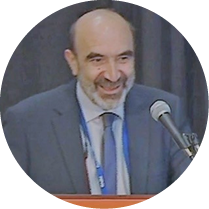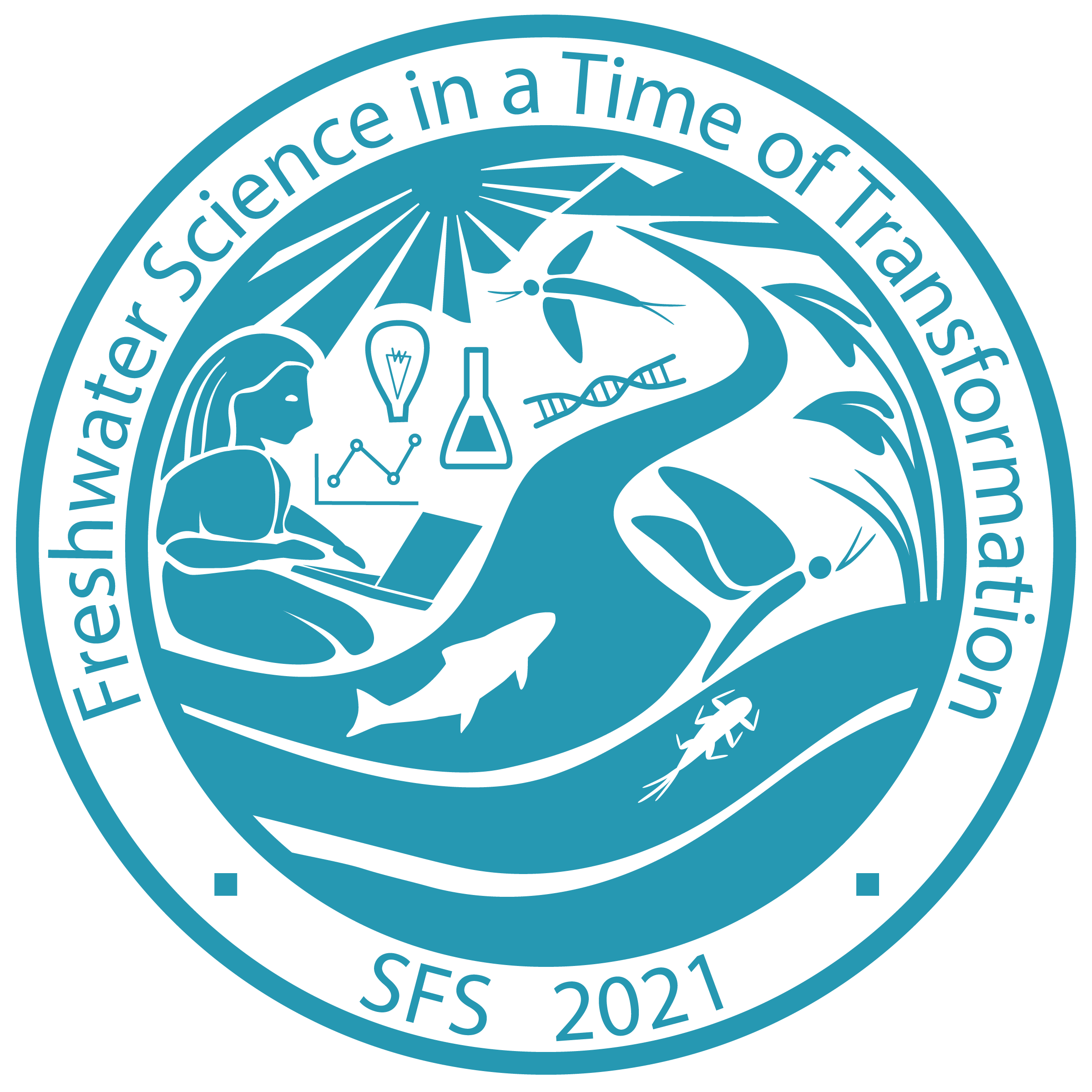
Journal Menu
► ▼ Journal Menu-
- Water Home
- Aims & Scope
- Editorial Board
- Reviewer Board
- Topical Advisory Panel
- Instructions for Authors
- Special Issues
- Topics
- Sections & Collections
- Article Processing Charge
- Indexing & Archiving
- Editor’s Choice Articles
- Most Cited & Viewed
- Journal Statistics
- Journal History
- Journal Awards
- Society Collaborations
- Conferences
- Editorial Office
Journal Browser
► ▼ Journal BrowserNeed Help?
Announcements
3 August 2021
Announcement on Japanese Consumption Tax (JCT)
This serves to announce to our valued authors based in Japan that value-added tax, or consumption tax will now be imposed on article processing fees and other service fees for all papers submitted, or resubmitted (assigned new paper IDs), effective from 15 August 2021. The change is in accordance with the Japanese "Act for Partial Revision of the Income Tax Act and Other Acts" (Act No. 9 of 2015), which includes a revision of consumption taxation on cross-border supplies of services such as digital content distribution.
For additional information from the National Tax Agency please see here ("Cross-border supplies of electronic services").
Contact: Setsuko Nishihara, MDPI Tokyo
27 July 2021
Water 3rd Webinar | Climate Change and Water Resources: Evidence, Impacts, Adaptation

Climate variations have always impacted water resources. Global concern is that the near-future rate of climate change may reach levels of which the impact is beyond our capacity to respond. Have we learned anything from the past? Is it possible to respond and take adaptation and mitigation measures? The webinar will address these issues, although in a focused sense. Three contributions will be presented: (1) historical climate change and adaptation technology; (2) water availability in southern Europe and the measures to be undertaken; (3) climate change impacts on droughts and water resources in the Mediterranean area and appropriate water resources management.
Date: 7 October 2021
Time: 4:00pm CEST | 10:00am EDT | 10:00pm CST
Webinar ID: 864 4451 3181
Webinar website: https://water-3.sciforum.net/
Register for free here:
Program
|
Speaker/Presentation |
Time in CEST/CET |
|
Prof. Dr. Athanasios Loukas |
4:00–4:10 pm |
|
Prof. Dr. Demetris Koutsoyiannis |
4:10–4:35 pm |
|
Prof. Dr. Luis Garrote |
4:35–5:00 pm |
|
Prof. Dr. Antonio Cancelliere |
5:00–5:25 pm |
|
Q&A Session |
5:25–6:00 pm |
|
Prof. Dr. Athanasios Loukas |
6:00–6:05 pm |
Chair
|
|
Prof. Dr. Athanasios Loukas Department of Transportation and Hydraulic Engineering, School of Rural and Surveying Engineering, Faculty of Engineering, Aristotle University of Thessaloniki, Thessaloniki, Greece |
Invited Speakers
 |
Prof. Dr. Demetris Koutsoyiannis Department of Water Resources, School of Civil Engineering, National Technical University of Athens, Athens, Greece |
 |
Prof. Dr. Luis Garrote Department of Civil Engineering: Hydraulics, Energy and Environment, Technical University of Madrid, Spain |
|
|
Prof. Dr. Antonio Cancelliere Dipartimento di Ingegneria Civile e Architettura, Università di Catania, Via S. Sofia 64, 95123 Catania, Italy |
For any questions about the webinar, please send an email to water.webinar@mdpi.com.
30 June 2021
2020 Impact Factors - Released
The 2020 citation metrics have been officially released in the Journal Citation Reports (JCR)!
We are pleased to announce that 85 MDPI journals are included, of which:
- 10 journals received their first impact factor
- 96% of journals increased their impact factor from 2019
- 32 journals (38%) ranked among the top 25% of journals, in at least one category
| Journal | Impact Factor | Rank | Category |
| Cancers | 6.639 | Q1 | • Oncology |
| Cells | 6.600 | Q2 | • Cell Biology |
| Pharmaceutics | 6.321 | Q1 | • Pharmacology & Pharmacy |
| Antioxidants | 6.313 | Q1 | • Food Science & Technology |
| • Biochemistry & Molecular Biology | |||
| • Chemistry, Medicinal | |||
| Biomedicines | 6.081 | Q1 | • Medicine, Research & Experimental |
| • Pharmacology & Pharmacy | |||
| • Biochemistry & Molecular Biology | |||
| International Journal of Molecular Sciences | 5.924 | Q1 | • Biochemistry & Molecular Biology |
| Q2 | • Chemistry, Multidisciplinary | ||
| Pharmaceuticals | 5.863 | Q1 | • Pharmacology & Pharmacy |
| • Chemistry, Medicinal | |||
| Journal of Fungi | 5.816 | Q1 | • Mycology |
| • Microbiology | |||
| Nutrients | 5.719 | Q1 | • Nutrition & Dietetics |
| Biosensors | 5.519 | Q1 | • Chemistry, Analytical |
| • Instruments & Instrumentation | |||
| Q2 | • Nanoscience & Nanotechnology | ||
| Marine Drugs | 5.118 | Q1 | • Chemistry, Medicinal |
| • Pharmacology & Pharmacy | |||
| Biology | 5.079 | Q1 | • Biology |
| Nanomaterials | 5.076 | Q1 | • Physics, Applied |
| Q2 | • Chemistry, Multidisciplinary | ||
| • Materials Science, Multidisciplinary | |||
| • Nanoscience & Nanotechnology | |||
| Viruses | 5.048 | Q2 | • Virology |
| Journal of Personalized Medicine | 4.945 | Q1 | • Medicine, General & Internal |
| • Health Care Sciences & Services | |||
| Metabolites | 4.932 | Q2 | • Biochemistry & Molecular Biology |
| Biomolecules | 4.879 | Q2 | • Biochemistry & Molecular Biology |
| Remote Sensing | 4.848 | Q1 | • Geosciences, Multidisciplinary |
| Q2 | • Remote Sensing | ||
| • Imaging Science & Photographic Technology | |||
| • Environmental Sciences | |||
| Gels * | 4.702 | Q1 | • Polymer Science |
| Antibiotics | 4.639 | Q2 | • Infectious Diseases |
| • Pharmacology & Pharmacy | |||
| Toxins | 4.546 | Q1 | • Toxicology |
| • Food Science & Technology | |||
| Vaccines | 4.422 | Q2 | • Immunology |
| • Medicine, Research & Experimental | |||
| Molecules | 4.412 | Q2 | • Chemistry, Multidisciplinary |
| • Biochemistry & Molecular Biology | |||
| Foods | 4.350 | Q2 | • Food Science & Technology |
| Polymers | 4.329 | Q1 | • Polymer Science |
| Journal of Clinical Medicine | 4.242 | Q1 | • Medicine, General & Internal |
| Toxics | 4.146 | Q2 | • Toxicology |
| • Environmental Sciences | |||
| Catalysts | 4.146 | Q2 | • Chemistry, Physical |
| Microorganisms | 4.128 | Q2 | • Microbiology |
| Membranes | 4.106 | Q1 | • Polymer Science |
| Q2 | • Engineering, Chemical | ||
| • Materials Science, Multidisciplinary | |||
| • Chemistry, Physical | |||
| Genes | 4.096 | Q2 | • Genetics & Heredity |
| Fermentation * | 3.975 | Q2 | • Biotechnology & Applied Microbiology |
| Journal of Cardiovascular Development and Disease * | 3.948 | Q2 | • Cardiac & Cardiovascular Systems |
| Plants | 3.935 | Q1 | • Plant Sciences |
| Life | 3.817 | Q2 | • Biology |
| Diagnostics | 3.706 | Q2 | • Medicine, General & Internal |
| Current Oncology | 3.677 | Q3 | • Oncology |
| Materials | 3.623 | Q1 | • Metallurgy & Metallurgical Engineering |
| Q2 | • Materials Science, Multidisciplinary | ||
| • Chemistry, Physical | |||
| • Physics, Applied | |||
| • Physics, Condensed Matter | |||
| Sensors | 3.576 | Q1 | • Instruments & Instrumentation |
| Q2 | • Chemistry, Analytical | ||
| • Engineering, Electrical & Electronic | |||
| Pathogens | 3.492 | Q2 | • Microbiology |
| Agronomy | 3.417 | Q1 | • Agronomy |
| • Plant Sciences | |||
| Chemosensors | 3.398 | Q2 | • Instruments & Instrumentation |
| • Chemistry, Analytical | |||
| Q3 | • Electrochemistry | ||
| Land | 3.398 | Q2 | • Environmental Studies |
| Brain Sciences | 3.394 | Q3 | • Neurosciences |
| International Journal of Environmental Research and Public Health | 3.390 | Q1 | • Public, Environmental & Occupational Health (SSCI) |
| Q2 | • Public, Environmental & Occupational Health (SCIE) | ||
| • Environmental Sciences (SCIE) | |||
| Tomography | 3.358 | Q2 | • Radiology, Nuclear Medicine & Medical Imaging |
| Fractal and Fractional * | 3.313 | Q1 | • Mathematics, Interdisciplinary Applications |
| Sustainability | 3.251 | Q2 | • Environmental Sciences (SCIE) |
| • Environmental Studies (SSCI) | |||
| Q3 | • Green & Sustainable Science & Technology (SCIE) | ||
| • Green & Sustainable Science & Technology (SSCI) | |||
| Water | 3.103 | Q2 | • Water Resources |
| • Environmental Sciences | |||
| Journal of Theoretical and Applied Electronic Commerce Research | 3.049 | Q3 | • Business |
| Energies | 3.004 | Q3 | • Energy & Fuels |
| Agriculture | 2.925 | Q1 | • Agronomy |
| ISPRS International Journal of Geo-Information | 2.899 | Q2 | • Geography, Physical |
| • Computer Science, Information Systems | |||
| Q3 | • Remote Sensing | ||
| Micromachines | 2.891 | Q2 | • Instruments & Instrumentation |
| • Physics, Applied | |||
| Q3 | • Chemistry, Analytical | ||
| • Nanoscience & Nanotechnology | |||
| Coatings | 2.881 | Q2 | • Materials Science, Coatings & Films |
| • Physics, Applied | |||
| Q3 | • Materials Science, Multidisciplinary | ||
| Children | 2.863 | Q2 | • Pediatrics |
| Processes | 2.847 | Q3 | • Engineering, Chemical |
| Separations | 2.777 | Q3 | • Chemistry, Analytical |
| Insects | 2.769 | Q1 | • Entomology |
| Animals | 2.752 | Q1 | • Agriculture, Dairy & Animal Science |
| • Veterinary Sciences | |||
| Symmetry | 2.713 | Q2 | • Multidisciplinary Sciences |
| Atmosphere | 2.686 | Q3 | • Meteorology & Atmospheric Sciences |
| • Environmental Sciences | |||
| Applied Sciences | 2.679 | Q2 | • Engineering, Multidisciplinary |
| • Physics, Applied | |||
| Q3 | • Chemistry, Multidisciplinary | ||
| • Materials Science, Multidisciplinary | |||
| Photonics | 2.676 | Q2 | • Optics |
| Buildings * | 2.648 | Q2 | • Construction & Building Technology |
| • Engineering, Civil | |||
| Healthcare | 2.645 | Q2 | • Health Policy & Services (SSCI) |
| Q3 | • Health Care Sciences & Services (SCIE) | ||
| Minerals | 2.644 | Q2 | • Mining & Mineral Processing |
| • Mineralogy | |||
| • Geochemistry & Geophysics | |||
| Forests | 2.634 | Q1 | • Forestry |
| Crystals | 2.589 | Q2 | • Crystallography |
| Q3 | • Materials Science, Multidisciplinary | ||
| Entropy | 2.524 | Q2 | • Physics, Multidisciplinary |
| Diversity | 2.465 | Q2 | • Biodiversity Conservation |
| Q3 | • Ecology | ||
| Journal of Marine Science and Engineering | 2.458 | Q2 | • Oceanography |
| • Engineering, Marine | |||
| • Engineering, Ocean | |||
| Medicina | 2.430 | Q2 | • Medicine, General & Internal |
| Machines * | 2.428 | Q2 | • Engineering, Mechanical |
| Q3 | • Engineering, Electrical & Electronic | ||
| Electronics | 2.397 | Q3 | • Engineering, Electrical & Electronic |
| • Computer Science, Information Systems | |||
| • Physics, Applied | |||
| Fishes * | 2.385 | Q2 | • Fisheries |
| • Marine & Freshwater Biology | |||
| Metals | 2.351 | Q2 | • Metallurgy & Metallurgical Engineering |
| Q3 | • Materials Science, Multidisciplinary | ||
| Horticulturae * | 2.331 | Q1 | • Horticulture |
| Veterinary Sciences * | 2.304 | Q1 | • Veterinary Sciences |
| Universe | 2.278 | Q3 | • Physics, Particles & Fields |
| • Astronomy & Astrophysics | |||
| Mathematics | 2.258 | Q1 | • Mathematics |
| Magnetochemistry | 2.193 | Q3 | • Chemistry, Inorganic & Nuclear |
| • Chemistry, Physical | |||
| • Materials Science, Multidisciplinary | |||
| Current Issues in Molecular Biology | 2.081 | Q4 | • Biochemistry & Molecular Biology |
| Actuators | 1.994 | Q3 | • Instruments & Instrumentation |
| • Engineering, Mechanical | |||
| Aerospace * | 1.659 | Q2 | • Engineering, Aerospace |
* Journals given their first Impact Factor in 2021
Source: 2020 Journal Impact Factors, Journal Citation Reports ® (Clarivate, 2021)
24 June 2021
Prof. Dr. Gang Pan Appointed Associate Editor of Water

We are pleased to announce that Prof. Dr. Gang Pan has been appointed as Associate Editor of Water (ISSN 2073-4441). His term started in June 2021.
Dr. Gang Pan is a Full Professor and Ex-Associate Dean of Research for the School of Animal, Rural, and Environmental Sciences. He is now the Director of the Centre of Integrated Water–Energy–Food (iWEF) studies at NTU. Prof. Pan is an environmental, ecological, material, and physical chemist. He pioneers in geoengineering technologies for natural water restoration and eutrophication control, sediment remediation, environmental nanotechnology, surface adsorption, algal biotechnology, and synchrotron techniques. He was awarded the National First Prize of Environmental Science and Technology of China (2009); “Scientists of the Year” (2010, Chinese national annual award); 2014 Excellence in Review Awards (ES&T); the First Prize of “Dayu Award” in 2017 (the highest Chinese national award in hydrology and ecology). He has published over 300 peer-reviewed papers (H-index 51 Google Scholar) and filed over 50 patents. His current research focuses on algal biotechnology and nanobubble technology.
The editorial team warmly welcomes Prof. Dr. Gang Pan as Associate Editor and looks forward to his contribution to the continued success of Water.
For further information on the journal Water, please see here.
22 June 2021
Water Has Received an Increased CiteScore of 3.7

It is our great pleasure to announce that Water (ISSN 2073-4441) has received an increased CiteScore (2020 Scopus data) of 3.7 for the year 2020, which equals the rank of 66/225 (Q2) in "Water Science and Technology" (Environmental Science); 63/224 (Q2) in "Aquatic Science" (Agricultural and Biological Sciences); 125/704 (Q1) in "Geography, Planning and Development" (Social Sciences).
We would like to extend our sincerest gratitude to all the authors, reviewers, and editors who have contributed to the journal and enabled this achievement!
22 June 2021
Join Us Virtually at the ASLO 2021 Aquatic Sciences Meeting, 22–27 June 2021

Following the pressing needs of the society to ensure a sustainable future, amidst human-influenced environmental changes, the theme of the meeting is “Aquatic Sciences for a Sustainable Future: Nurturing Cooperation”. Underdeveloped and developed societies face different levels of sustainability problems in aquatic resources and have contrasting capacities to address and adapt to upcoming changes and threats, which makes cooperation paramount for an efficient and increasing exchange of information to find long-term sustainable solutions. Dialogue among scientists, as well as the transfer of knowledge for the benefit of society, are very important in addressing sustainability challenges. To provide a venue for this exchange, we will incorporate the theme into the plenary sessions: The future of seafood resources and the role of cooperation; Restoration of aquatic ecosystems, in line with the United Nations Decade of Restoration; Carbon dynamics in lakes and rivers; Past and future of ocean circulation and its role for the climate system; Linking the health of the oceans to humans; Remote sensing and large scale detection; Integrated management of aquatic resources.
Water will be present online at ASLO 2021 Aquatic Sciences Meeting as an exhibitor. If you are attending this conference, please feel free to visit our page.
Besides Water, the following MDPI journals will be represented as well:
- Energies;
- Hydrology;
- JMSE;
- Resources;
- Ocean.
For more information about the conference, please visit https://aslo2021.secure-platform.com/a/page/newhomepage.
8 June 2021
Meet Us Virtually at 2021 IEEE International Geoscience and Remote Sensing Symposium (IGARSS)

MDPI will be attending IGARSS 2021, to be held in virtual form from 12th to 16th of July 2021.
IGARSS 2021, which will take place from 12 to 16 July 2021, is a joint effort of the Low Countries, the Netherlands and Belgium, and they have chosen Crossing Borders as the overall theme of the conference:
- Between countries and research institutes;
- Between types of platforms (from satellites to drones);
- Between data sources;
- Between disciplines.
The following MDPI journals will be represented:
If you are attending this conference, please feel free to start an online conversation with us. Our delegates look forward to meeting you in person and answering any questions you may have. For more information about the conference and our virtual booth, please visit: https://igarss2021.com/default.asp.
24 May 2021
Water | Join Us Virtually at SFS 2021 Annual Meeting, May 23–27, 2021

The Society for Freshwater Science (SFS) is an international scientific organization whose purpose is to promote further understanding of freshwater ecosystems (rivers, streams, lakes, reservoirs and estuaries) and ecosystems at the interface between aquatic and terrestrial habitats (wetlands, bogs, fens, riparian forests and grasslands).
In freshwater science, many of us study transformations that happen in nature, such as nutrient cycles, animal life histories, river channel geomorphology, and more. With all of the challenges in 2020, SFS as a society is clearly facing a time of dramatic transformations. The SFS 2021 Meeting Program Committee embraces and welcomes changes in our scientific society as we transform in ways that make our scientific society more inclusive, equitable, and better able to respond to the many freshwater challenges facing the world.
Water will be present online at the SFS 2021 Annual Meeting as an exhibitor. If you are attending this conference, please feel free to visit our page.
In addition to Water, Toxics will be represented as well. For more information about the conference, please visit https://sfsannualmeeting.org/.
28 April 2021
Book Builder—Compile a Customized E-Book from Your Favorite MDPI Open Access Content
MDPI Books recently released Book Builder, a new online tool to conveniently arrange, design and produce an eBook from any content published in MDPI journals. Book Builder offers two functions: on the one hand (1) Selections, available to every registered user of MDPI; on the other hand (2) Special Issue Reprints, which can be used exclusively by Guest Editors of Special Issues.
Selections
In just a matter of a few clicks, all users are now able to assemble books from MDPI articles and receive instantaneous feedback in the form of a fully produced and compiled book (PDF), which can be downloaded or ordered as print copy. Selections can include any paper published with MDPI, picking and combining content from different journals and special issues.
This way, the user may for example choose to compile an ebook focusing around a particular topic, or assemble articles from a group of others.
We invite you to make yourself familiar with the new tool! The Book Builder can be found here: https://www.mdpi.com/books/book_builder.
Special Issue Reprints
The Book Builder allows Guest Editors of MDPI journals to create a reprint from a successfully completed Special Issue or Topical Collection in book format. If you are a Guest Editor for an MDPI journal, you can use the new tool to create an PDF document which includes all articles published in the Special Issue as well as a book cover and table of contents.
For Special Issues containing a minimum of 5 articles, the Guest Editor can request its publication on the MDPI Book platform. Published reprints are assigned an ISBN and DOI.
In addition to the PDF copy of the Reprint Book, as a token of our gratitude, MDPI offers every Guest Editor one (1) complimentary print copy (via print-on-demand). All contributors benefit from a discount on orders of any additional print copies, to share with colleagues or libraries or others.
In line with our organization's values, MDPI Books publishes all content in open access, promoting the exchange of ideas and knowledge in a globalized world. MDPI Books encompasses all the benefits of open access—high availability and visibility, as well as wide and rapid dissemination. MDPI Books are distributed under the terms and conditions of the Creative Commons Attribution License, meaning as an author you retain the copyright for your work. In addition, with MDPI Books you can complement the digital version of your work with a high-quality printed counterpart.
If you are interested in editing a book volume or series, or have a monograph manuscript to be considered for publication, please submit your proposal online and look at our Information for Authors.
Contact: Laura Wagner, MDPI Books Manager (email)
20 April 2021
Join Us at the EGU General Assembly, 19-30 April 2021

The EGU General Assembly 2021 will bring together geoscientists from all over the world to one meeting covering all disciplines of the Earth, planetary, and space sciences. The EGU aims to provide a forum where scientists, especially early career researchers, can present their work and discuss their ideas with experts in all fields of geoscience. The EGU is looking forward to cordially welcoming you at its General Assembly.
Water will be present online at the EGU General Assembly 2021 as an exhibitor. If you are attending this conference, please feel free to visit our page.
Besides Water, the following MDPI journals will be represented as well:
- Atmosphere
- Climate
- Drones
- Energies
- Hydrology
- IJGI
- Land
- Minerals
- Remote Sensing
- Soil Systems
- Sustainability
- Toxics
For more information about the conference, please visit https://www.egu21.eu/.





